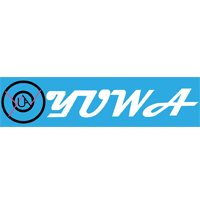You are in IT and haven’t heard of “block chain” is nearly impossible. Yes. that’s something about Bitcoin. In fact, it is the other way around. Bitcoin is just a cryptocurrency application of Blockchain technology. Here we shall try to grasp Blockchain and it’s impact on digital transformation of businesses.
Before that let us understand what is digital transformation? Is it just setting up an ERP or CRM or integrated business processes in your, otherwise, legacy system? Of course not. It is more pervasive than that. It is about transforming the core of business and organizational activities, processes, competencies and models to befriend ever evolving digital technologies and leverage them in strategic and prioritized manner with an eye on the future. Sounds heavy? Well, in nutshell it’s about embracing digital in every processes and touch-points for holistic business and social impact.
What are the biggest threats to digital transformation of businesses?
Despite the huge leap in information technology in last couple of decades, businesses are still skeptic about complete digitization. Digitization and connectedness, in a sense, magnify risks. Controls and data transfer security also plays very vital role in digitized environment. Organizations today are heavily invested on securing their IT system from all possible breaches. For trust-worthy digital transformation, organizations urgently need solutions, which can take care of security, accountability and reliability. And there comes the Blockchain technology.
Blockchain – beyond the clutters of hype
Bitcoin and related hype has made Blockchain immensely popular and confusing too. We all know but hardly can make meaning out of it.
In its core, Blockchain is a distributed data structure in a peer-to-peer network; each peer point being called a node. Period. And there lies the key to its success. In any legacy database solution, there exists a centralized system that routes, monitors and controls data sharing for security and accountability. This makes the whole system vulnerable against any kind of network breach.
Block chain data base utilizes distributed ledgers to initiate transaction, for keeping records of transactions and to verify transactions. Each transaction is recorded and shared across the nodes. Blocks are nothing but accumulation of such verified transaction records with a link to the just previously closed block. As each block is chain-linked with other blocks, such database is called block chain. Whenever, a new transaction is notified in the network, each receiving node verifies the transaction on the basis of algorithm-based digital signature and, once verified, passes on to adjacent nodes. And the process continues till all the peer nodes receive and verify the transaction. This feature makes the whole data structure very resistant to modification making data fudging impossible.
After all it’s easy to breach one central agency than falsifying every node in a peer-to-peer network\; especially when all the peers enjoy equal rights.
Impact of digital transformation
By its design, block chain make digitization secure. Threats to data can be completely overruled for its inherent security and accountability features. Along with that you can add multiple application specific layers, like, consensus mechanism for creating executable contracts. Besides, block chains can be deployed equally in private as well as public networks.
However, complete impact of block chain on digital transformation in businesses it is not evidently clear at this moment. There is immense potential; and there are few bottlenecks also like, interoperability and the bandwidth it can handle. Blockchain now looks like what internet was in its early days. New applications are being developed in different industries, including finance. However, the whole technology is still very nascent.
































































